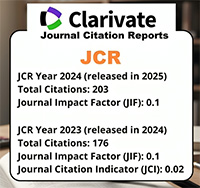Effectiveness of melatonin in tardive dyskinesia
Resumen
Tardive Dyskinesia (TD) is a movement disorder associated with the clinical administration of antipsychotics. It is believed that TD is due, among other factors, to an increase in the oxidative damage produced by free radicals. Antioxidants, like vitamin E, have been used in the treatment of TD but there is no evidence of their effectiveness. Melatonin (MEL) is 6 to 10 times more effective, as an antioxidant, than vitamin E and it has been used with an apparent higher effectiveness in the treatment of TD, although the results have not been conclusive. A randomized, double blind, placebo controlled design was used to determine the effectiveness of MEL (20mg/day) during 12 weeks in 7 patients with TD. Six patients with TD were treated with placebo. The Abnormal Involuntary Movement Scale (AIMS) was chosen to assess the severity of TD initially and after 4, 8 and 12 weeks. The psychiatric evaluation was done following the Brief Psychiatric Rating Scale. In two patients treated with MEL a significant improvement (more than 60%) of the values of AIMS was detected. In the remainder five, as well as in the patients treated with placebo, no difference was observed during the 12 weeks. When compared the AIMS score in all the MEL-treated patients with the values in the placebo-treated patients, no significant differences were detected during the 12 weeks of the study. However, the significant clinical improvement observed in two patients must be considered before reaching a final conclusion on the usefulness of MEL in TD.




















